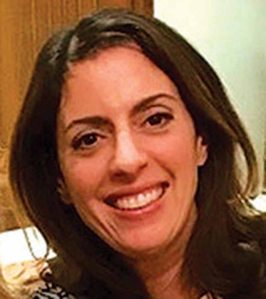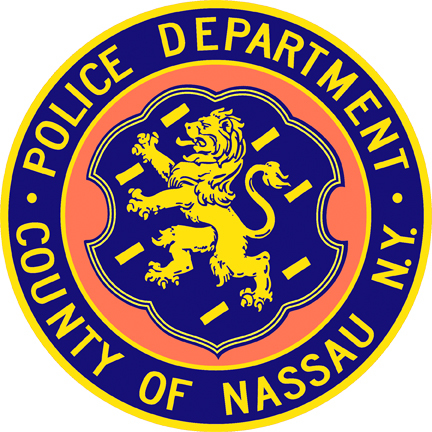
Part 1 of a three-part series regarding our community’s response to the opioid epidemic
One of the most painful and destructive forces in a family is drug addiction, overdose and suicide among young people. As a result of the stigma and shame, these issues are typically hidden from outsiders.
Sadly, Great Neck has not been immune to this crisis, as an alarming number of young people have succumbed to drug overdoses in recent years. It is widely predicted by experts that fatalities will rise dramatically on Long Island and throughout the country. Concerned parents in our community have organized a response.
The public school’s UPTC, headed by Michelle Ahdoot, will present Not My Child, a forum that will offer critical prevention information, tips and resources for parents and teens on Wednesday, Nov. 1, at 7 p.m. The event is open to the entire community and will take place at the Great Neck Main Library, which is a cosponsor of the event, along with North Shore Action, which is moderating the panel.
The Not My Child presentation will focus on raising awareness about the deadly opioid epidemic in the community. A recent Long Island high school graduate who is in recovery from opioid drug addiction will speak at the event.
Experts panelists will include Amanda Cioffi, education and training supervisor of the Long Island Council on Alcoholism and Drug Dependency (LICADD); Cathy Samuels from CASA Manhasset; Maria Cuadra of COPAY in Great Neck; Detective Pamela Stark of the Nassau County Police Task Force on Opioids; and Zachary Goldfarb, EMT and Sergeant of Arms at the Vigilant Fire Company. A parent task force will be organized at the event and sign up for training to use Narcan, also known as Naloxone, a nasal spray opioid-overdose reversal medication, will be offered.
Illegal Drug Use Is Prevalent In Great Neck
The Great Neck peninsula is a beautiful place to live and work, but with regard to drug activity, it shares characteristics with other communities across the socioeconomic spectrum.
Like almost every other town, we are home to drug users and dealers, and subject to the forces of supply and demand. Only two weeks ago, a Great Neck man was arrested for criminal possession of a large quantity of controlled substances. He was charged with the sale of drugs online, including opioids. For those in the know, due to advances in smartphone technology, recreational drugs are readily available via Uber delivery.
The developing brains of children and young adults make the risk of addiction especially significant. Many parents, myself included, are terrified by the advent of synthetic-laced drugs. One of these is an elephant tranquilizer called Carfentanil. This drug, which is frequently combined with marijuana, is 5,000 times more powerful than heroin—and is being sold on the streets and the Internet. Needless to say, it is deadly, and police do not have the resources to protect our children from it.
Therefore, it is vitally important for parents of teenagers and young adults to be fully aware of the dangers posed by readily available drugs, alcohol and narcotics. Knowledge is power and red flags can be found in virtually every case of drug addiction.
Studies show that parents have considerable influence on the actions and decisions of the young people living in their households. In fact, children whose parents talk regularly about the dangers of underage drinking are 42 percent less likely to drink alcohol, according to the New York State Office on Alcoholism and Substance Abuse Services (NYSOASAS). The same deterrent effect occurs with drug use. Talking to your children works. It can prevent drug use and even addiction.
The statewide campaign Talk2Prevent will be presented at the Not My Child forum on Nov. 1. The initiative encourages parents to connect with their children early and often—and continue the conversation throughout high school and even college. Developing open, honest and trusting communication between parents and children is essential to helping them avoid substance abuse and addiction.
Combatting the Stigma of Drug Addiction in Our Society
The popular anti-drug slogan “Just Say No” promotes the idea that drug use is simply a matter of willpower. It implies that an individual’s relapse is a moral failure of wrongful behavior rather than a medical disease due to altered brain chemistry. Abstinence language and a lack of understanding about what triggers relapse also increase shame and blame.
There is a growing realization that addicts need to have continuing care and extended oversight—the same way we would expect care for a chronic asthmatic or diabetic—and this should not be a judgment against the addict. Above all, the goal is to keep the individual alive, and to reduce the risk of a fatal overdose.
Methadone and other medications can provide relief and actually alter brain chemistry so that the addict has no cravings to go back to using drugs. Of course, therapy and lifestyle changes are critical, too. This can be compared to the way a diabetic needs to alter diet and lifestyle or someone suffering from anxiety may need to go to counseling.
For a young person who is abusing drugs, including opiates, one of the challenges is embarrassment or shame for the individual or family if treatment is needed. A daily dose of methadone could help that young person stay alive and move forward to a healthy and successful future.
Parents need to be aware that effective medication that can save their child’s life exists. Ongoing counseling, psychosocial therapy and 12-step groups are also important. Unfortunately, it can be routine for parents, and society at large, to react punitively when an addict falls off the wagon. However, symptoms of ongoing drug use are a normal challenge to treatment; they are not a reason to deny treatment.
More patient-centered care is needed, with the goal of stability and improved health for all patients, regardless of their diagnosis.
In our society, there are individuals who unabashedly smoke cigarettes and marijuana, or drink to excess. These habits may be harmful, and even life-threatening, however they are not reasons for a doctor to deny medical care. The same standard should be applied to those dealing with opioid addiction or mental-health challenges.
Kings Point resident Jacqueline Harounian is a regular contributor to the Great Neck Record. She is a trained volunteer at The Long Island Crisis Center (LICC) in Bellmore
and a member of North Shore Action.


























